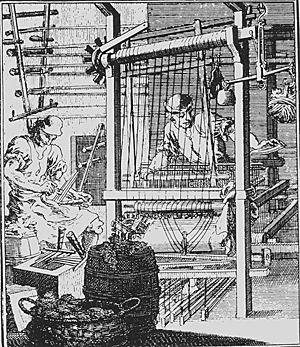
 One of the best sources on the history of Essex is The History and Antiquities of the Country of Essex
by Reverend Philip Morant (1700-1770). The Reverend started to write his history of Essex in 1760 when he was about 60 years, completing it eight years latter in 1768.
One of the best sources on the history of Essex is The History and Antiquities of the Country of Essex
by Reverend Philip Morant (1700-1770). The Reverend started to write his history of Essex in 1760 when he was about 60 years, completing it eight years latter in 1768.
Every family has a villan and every family has a saint. Who were the Wood families of Essex? What were their struggles and triumphs? What were their dreams and apspirations? For the family historian, bones and facts are not enough. The primary evidence we seek are the stories.
Essex in the Eighteenth Century is a long article that is easy read, providing a succinct summary of Essex during in the 18th century (published at the wilcuma.org.uk webiste). A few of its major points highlight trends and events that shaped the lives of the people of Essex. (See the article for more details.)

Farming: In 1707 the dyke along River Thames broke causing a disaster to farm land and homes that was not resolved until 1720. Nevertheless, the 18th century was a golden age for farming in Essex. The famers of Essex employed techniques to manage drainage and to rotate crops that "put them well ahead of other counties." The impending industrial revolution brought new farm equipment, which was a mixed blessing. Essex was one of the first counties to succesully grow potatoes.
Weaving: While famers prospered, the Weaving Industry continually delcined throughout the 18th century. Weaving had been the major industry of Essex during the 17th century. The Weaving Industry of Essex was the first to be impacted by the upheval of the industrial revolution.
(The Weaver by Christoph Weigel, 1698).
Local Life: The Chelmsford Chronicle, first published in 1764 by William Strupur, is our best source for the lives of ordinary people. The Villages of Essex were small. Everyone knew everyone's business. Parish records show that the correction of misdeeds was a form of entertainment, with everyone packing the church to hear the priest chastise their neighobr. Fornication was a tantalizing subject. On the flipside, the parish records chronicle charity and tenderness, with parishioners relieving the suffering in the community.
Military: During the 18th century, military events impacted the families of Essex. The Warly Camp brought soldiers to Essex from different parts of England. During England's war with the American Colonies, fisherman and merchant sailors were pressed into the service of the British Navy, significanly disrupting the Essex's fishing industry. Many Essex sailors served faithfully under Wellington at Waterloo but did not come home. The Napoleonic Wars culled energetic young men from the workforce.
London Markets:Throughout the 18th century, farmers and merchants "made a very good living from the London market." Road were improved and toll gates installed. When not at war, fishing was a prosperpous business.
Story A: TBD
Story B: TBD
Story C: TBD.
Story D: TBD
Admin Link
Templates - This tab links to templates for styling new pages
We do not know what you know. Please share with us your knowledge, and help us correct any error you find in our research.